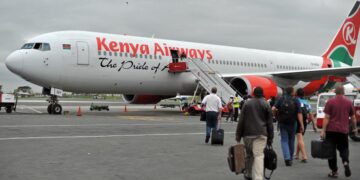Three years after the entry into force of the Local Content Law through the publication of Presidential Decree 271/20 on October 20, national companies continue to complain that they do not feel the benefits of this law that was supposed to create more opportunities in the sector by requiring oil companies to hire more local services.
In practical terms, the law grouped service opportunities into a list with three categories: exclusivity, preference, and competition. However, according to the two associations that represent companies providing services to oil operators in Angola, the government’s intention was good, but the benefits have been slow to materialize.
According to the Vice-President of the Association of Contracted Companies in the Angolan Oil Industry (AECIPA), Luís Lago de Carvalho, three years after the law was approved, it is not possible to measure its impact because there are no metrics or specific goals to achieve. “It is not possible to measure the impact of the Local Content Law because we don’t know whether the annual target is for Local Content to grow by 10% or 20%, or what percentage large projects need to have,” he points out.
Luís Lago de Carvalho gives an example: “Recently, an investment was announced for the development of an offshore block that will spend at least $5 billion, but we don’t know the proportion of this investment that should be absorbed by local content. As far as I know, almost nothing has been allocated to local content in this project.”
Nevertheless, the Vice-President of AECIPA acknowledges the efforts of the Ministry and ANPG in meeting with associations to identify areas for improvement in the implementation of the law, but so far, the results have been very limited. “The government is working with AECIPA and ASSEA to identify what can be improved, but the truth is that contract terms are still in need of improvement, and national companies continue to lack funding, making it difficult for them to compete,” he admits.
On the other hand, another entrepreneur in the sector, Cristian Issá, reveals that among the 63 member companies of the Association of Indigenous Companies of Angola (ASSEA), “very few can testify to a change in the paradigm.” “In general terms, we face the same economic inclusion difficulties. We continue to encounter the same barriers due to a lack of transparency, and the law has no effect,” he adds. Businesswoman Márcia Pita emphasizes the need for more transparency.
“National companies are even losing contracts that should be exclusively or preferentially awarded to them because oil companies bundle all services into a single contract, which is usually won by large multinational service providers like Schlumberger, Saipen, Aker Solutions, and others. Additionally, there is no oversight by the authorities to ensure that national companies are being hired. It is essential for ANPG to have visibility on these issues,” she points out.
Márcia Pita clarifies that improvements are particularly needed in terms of transparency because “if we don’t know who won the contracts and why, it becomes difficult to improve and secure contracts in future bids.”
According to ANPG, “81% of contracts approved by the concessionaire fall under the preference regime, meaning that national companies should be chosen over foreign ones. On the other hand, exclusive contracts, meaning contracts exclusively for national companies, represent about 2%, as revealed by ANPG without disclosing the number of contracts signed or their value. Nevertheless, in response to questions from Expansão, ANPG stated that when it comes to the types of companies winning the contracts, approximately 94% of approvals are granted to Commercial Companies under Angolan Law (SCDA), and 5% to Angolan Commercial Companies (SCA).
The national concessionaire believes that the numbers demonstrate “an indication of internal capacity, which is a positive sign of the ability of 100% Angolan companies to compete with foreign/multinational companies.” However, Expansão has learned that foreign multinational service companies often establish branches in Angola and end up winning contracts in that manner.



















![[Kenya] Digital credit provider Tala disbursed Sh240 billion in loans in eight years 19 [Kenya] Digital credit provider Tala disbursed Sh240 billion in loans in eight years](https://theafricanbusiness.com/wp-content/uploads/2023/02/TALA-APP-360x180.jpg)













